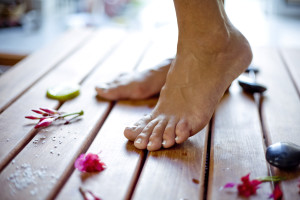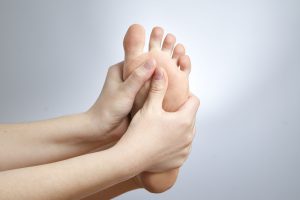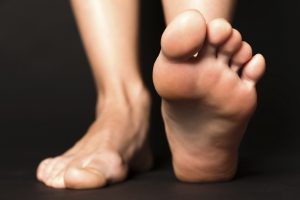Medically Reviewed by Dr. Rachel N. Verville
December 10, 2018
 Ladies in Frisco who have developed plantar fasciitis often have a common question: did my high heels cause me to have plantar fasciitis? The truth is wearing high heels can play a significant role in the development of plantar fasciitis. While it may not be the only reason, it’s likely a contributing factor for people who wear them often. High heels typically don’t have much cushion or support for the feet and aren’t very comfortable. So should high heels be avoided completely? Here’s what people need to know.
Ladies in Frisco who have developed plantar fasciitis often have a common question: did my high heels cause me to have plantar fasciitis? The truth is wearing high heels can play a significant role in the development of plantar fasciitis. While it may not be the only reason, it’s likely a contributing factor for people who wear them often. High heels typically don’t have much cushion or support for the feet and aren’t very comfortable. So should high heels be avoided completely? Here’s what people need to know.
Uneven Weight Distribution Creates an Unnatural Foot Position
The uneven distribution of weight when wearing high heels is the main reason why plantar fasciitis can develop. This uneven weight distribution can put the arch of the foot into a position that’s unnatural. Of course, wearing high heels occasionally usually won’t hurt, but it’s the prolonged usage that can make a significant impact. The lack of cushioning in them makes the heel feel the impact of a hard and potentially uneven surface, which places a strain on the entire foot and ankle.
Plantar Fasciitis May Only Be the Beginning
Wearing high heels every day for an extended amount of time can lead to plantar fasciitis. High heels can also create other areas of discomfort for Frisco patients, including calf issues, ankle weakness, problems with the toes and more. The unnatural position of the feet disrupts the body’s natural alignment as well. This can lead to potential discomfort in the neck, back, and shoulders. While wearing high heels can lead to these potential issues, it may not be completely necessary to avoid wearing them, however.
Should High Heels Be Avoided Completely?
Whether ladies in Frisco have to wear high heels for their job or they simply like to wear them, the good news is they may not have to completely avoid them in order to prevent plantar fasciitis from developing. Downgrading to a lower heel may seem like a subtle change, but can make a significant impact on the strain put on the body.
One thing to avoid is switching from high heels to flat shoes immediately. The plantar fascia and Achilles tendon will adjust to the positioning of the high heels, and switching to flats suddenly can cause more strain. Stretching the feet and heels before wearing high heels can provide significant benefits to Frisco ladies. This will get the ligaments and muscles prepared for wearing them, and the stretching only needs to last for a few minutes at a time.
RNV Podiatry wants women to be able to wear high heels whenever they want to. While there is a real connection between high heels and plantar fasciitis, Dr. Verville always looks for alternative ways to help support the feet so her patients can continue wearing them without experiencing any significant symptoms. Most of the time all it takes is slight alterations to the high heels you’re wearing or taking simple preventative measures. Dr. Verville is always willing to evaluate patients and make the best recommendations for them.
Don’t hesitate to contact us at (214) 385-8822 at any time if you have questions or concerns about your feet as they relate to wearing high heels.












